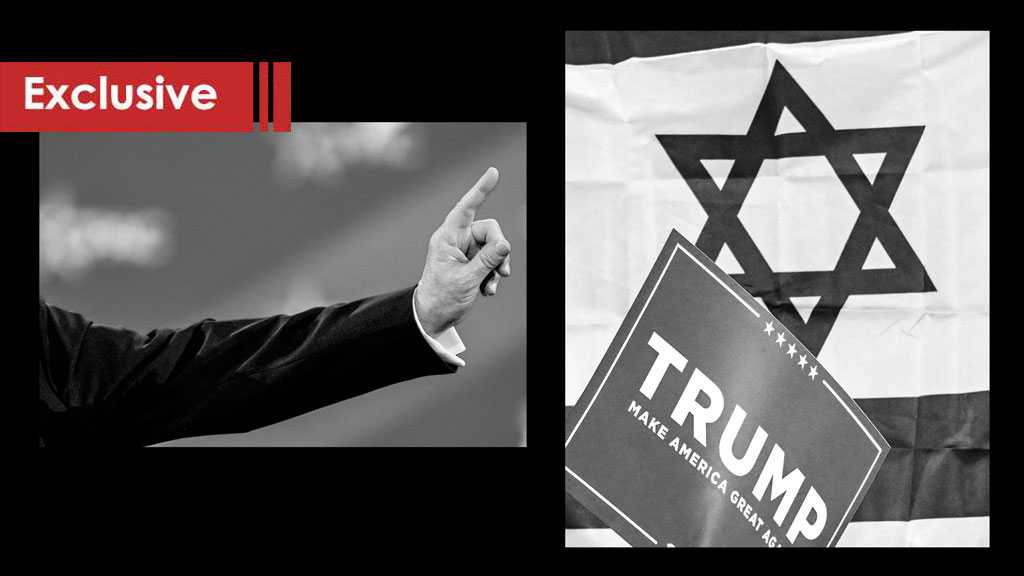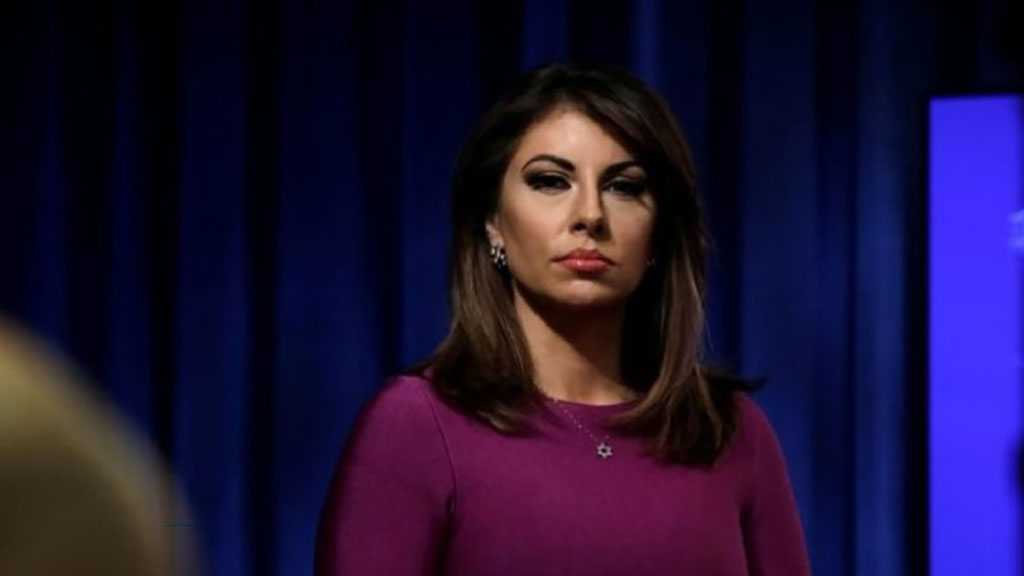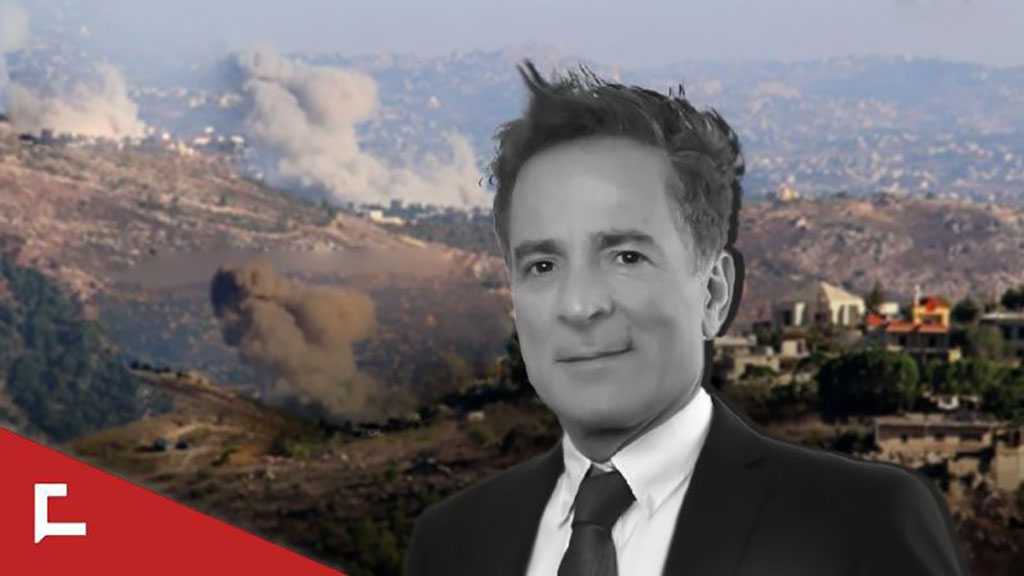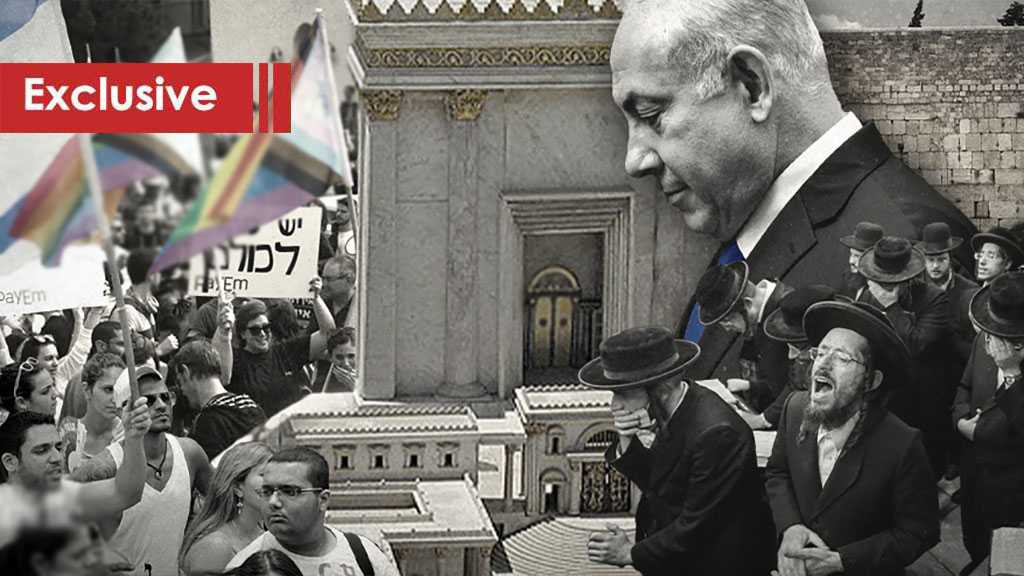
Abadi Renews Iranian Offer to Lebanon: Iranian Firms Finished Preliminary Steps, Ready for Resolving Electricity Crisis

Photographs by: Moussa al-Husseini
On the 29th anniversary for the abduction of the Iranian diplomats (4 July 1982), the Iranian Ambassador to Lebanon Ghadanfar Rokon Abadi revealed the Islamic Republic of Iran, assisted by the Lebanese government, made an official documentation at the United Nations (UN), proving that the abductees were abducted at al-Barbara Checkpoint in Lebanon.
Abadi confirmed "all indicators and evidences pointed out these diplomats were transported from Lebanon to occupied Palestine, also that they were alive, imprisoned by the "Israeli" occupation."
Denying that anyone had been assigned to file a case to the Lebanese courts regarding the four Iranian abductees, Abadi pointed out Iran was now working on completing the dossier and gathering documents to present it to the international courts. He then called whoever had good consciousness to help complete this humanitarian dossier in order to accuse "Israel" for abducting the diplomats.
Regarding the Lebanese abductees, Abadi pointed out there were Iranian abductees, too, in Syria, so all of them now had a common dossier. Abadi then said Iran was making calls concerning this issue and hoping to reach the anticipated, positive outcome.
As for the Lebanese-Iranian relations, Abadi hoped the economic agreements signed with Lebanon would be fruitful and put into action soon. Abadi renewed Iran's offer to resolve the electricity crisis in Lebanon, refusing to accuse anyone of obstructing this offer, relating the impediment in its accomplishment to Lebanon's bureaucracy, and pointing out the Iranian firms had all preliminary steps finished and everything ready, whereupon the firms could now commence work and produce 500 MW in a year or 1000 MW in two years if Lebanon wanted so.
On the issue of the infiltration of the Turkish drone shot over the Syrian airspace, Abadi said the international-relations standards considered that as an assault. He further remarked how assailers are treated in such a case, and revealed Iran's strong intercession hemming in any possible development of the crisis involving Syria and Turkey.
Asked about the Egyptian issue, Abadi congratulated the Egyptian people for Muhammad Mursi's election as president, especially when Mursi had foiled all schemes attempting to bring former President Hosni Mubarak's regime back through a new façade.
Abadi said Egypt had entered now a new stage whereby Mursi would positively tackle the Palestinian issue. He as well noted the "Israeli" entity's apprehension for the Palestinian borders with Egypt after Mursi' the government headed by the Islamists had elected Mursi.
Here below is the interview:
*As the abduction anniversary of the four Iranian diplomats comes closer, how can you describe the efforts of the Islamic republic of Iran to find out their destiny?
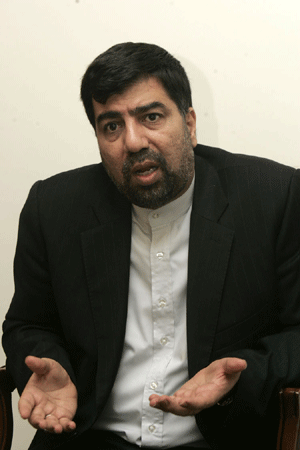
Well, the efforts have been ongoing since the moment the four diplomats were abducted.
Twenty-nine years after their abduction, we, along with the previous and current Lebanese governments and the Lebanese officials make continuous efforts. We have also officially documented at the UN that these four diplomats were abducted at al-Barbara Checkpoint in Lebanon.
Besides, there are ongoing efforts to resolve this case on the international level, as well as the on the level of the United Nations Human Rights Council (UNHRC), the International Red Cross and Red Crescent Movement, the Red Crescent International Organization, all diplomatic channels and human rights organizations, and the Lebanese governors in charge of this case.
What's important is that all the indicators and clues show that these diplomats were transported from Lebanon to Occupied Palestine and that they're alive, imprisoned by the "Israeli" occupation. Hereupon, we're doing our best to set them free and get them back to their homeland, the Islamic Republic of Iran.
*On which basis have you accused the "Israeli" entity of their abduction? And how have you confirmed their presence in this entity?
Well, first we haven't found any document or certificate proving they were
martyred in Lebanon or any other place as some claim, which provides the best evidence they haven't been martyred. On the contrary, we've found documents and evidences beside the indicators and clues that they're alive and that they've been transported from Lebanon to Occupied Palestine.
*Okay, is it right that judicial cases concerning this issue have been recently filed to the Lebanese courts?
No, this is not right as none has been assigned to do so. Since all documents, clues, and indicators show that the Zionists are primarily involved in this, and that the abducted diplomats are in the prisons of the "Israeli" occupation, we've focused on filing cases against "Israel" to the international courts. Of course, we'd been continuously tackling this issue along with all Lebanese governments and officials.
I actually remember that while I was discussing this issue with former Lebanese Justice Minister Ibrahim Najjar, he confirmed it was necessary to file a judicial case in Lebanon as to this issue. So we're reflecting on his recommendation, but so far it's important for us that we are certain the four Iranian diplomats are alive in the prisons of the "Israeli" occupation.
Certainly we've asked anyone in Lebanon having information on this case to help us, and we humanitarianly regard this issue; that is, the four abductees have been abducted for 29 years, during which their parents have died. Only one of them still has his son, wife, and siblings looking for him. Hereupon, we say we seek reaching the anticipated outcome, which is setting them free. And this makes us ask for the help of everyone here in Lebanon as well as anywhere else. Anyone having good consciousness observing this ultimately humanitarian issue must come and help us because we're currently gathering documents, clues, and indicators in order to complete the dossier accusing "Israel" of abducting them. So, we welcome anyone who might help us to complete this dossier and we thank him/her.
*Why have you made up your mind to mark the anniversary of the four Iranian diplomats' abduction in Southern border town of Maroun al-Ras particularly?
I've already mentioned "Israel" is mainly accused of this. That's why we've decided to mark their anniversary in Maroun al-Ras for the first time. By this way, we can directly make the accusation against "Israel", especially that Maroun al-Ras is significantly a resistive region.
*Relatively to this issue, what is the latest Iranian information on Imam Moussa Sadr's destiny, especially when we've recently heard a lot of Libyan talk about this issue and it's been said that samples of a body suspected to be Sayyed Moussa Sadr's have been handed over to Lebanon?
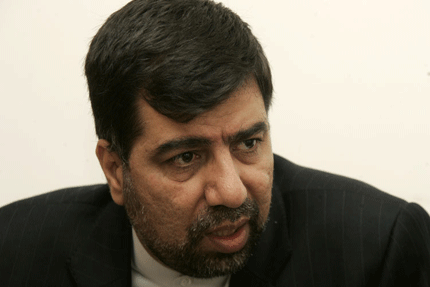
Well, what's been reported about Imam Sadr's case can't be true. The Iranian and the Lebanese Follow-Up Committees in charge of this case are seriously handling this dossier. Moreover, continuous coordination exists between them. So, the declarations we've recently heard are not true at all as the issue is still being followed up, and there's nothing new in the distance.
*What progress has been made by the calls regarding the case of the eleven Lebanese abductees in Syria? Has there been any development? And what role is Iran playing to set them free?
Since the same side abducted Iranian and Lebanese pilgrims in Syria, we can say the dossier is rather common. This is why we're making all the calls and follow-ups required. We hope we can get to the anticipated, positive outcome.
*Moving to the issue of the Lebanese-Iranian relations, how far have these relations progressed, especially after the Iranian vice president's recent visit to Lebanon and the signing of several agreements? And have these agreements been put into action or are there obstacles hindering that? Is there a full Lebanese response to that, too?
We've signed so many agreements with Lebanon, especially since President Mahmoud Ahmadi Nijad's visit to Beirut preceding former Premier Saad Hariri's visit to Iran. Then came the Iranian vice president's recent visit to Lebanon, crowning the economic activities; that is, "the First Supreme Committee for Thorough Cooperation between Lebanon and Iran" was held, and it was attended by representatives for all Lebanese and Iranian ministries and organizations, who met face to face. This actually shows that cooperation exists between all Lebanese and Iranian official sides. We, as well, signed five agreement warrants regarding executive programs. We hope that soon we cultivate the fruits of these agreements.
But the problem with Lebanon is bureaucracy and tardiness when it comes to handling executive affairs. In Iran, in contrast, there is a specialized committee formed by the senior officials in charge of tackling all urgent issues in the country. To clarify, the committee is usually held to make an immediate decision in two hours as to resolving crises like the electricity crisis, for instance, away from the bureaucracy present in the country. Apparently there is no committee for urgencies to tackle such issues in Lebanon... Thus, all we can do is waiting until everything undergoes the legal, administrative, routine, and executive channels...
The day we signed the electricity agreement with Lebanon, which was when President Mahmoud Ahmadi Nijad visited Lebanon a year and a half ago, I said we could have by now finished the project of the power plants producing 500 megawatts and 1000 MW. Even starting today is better than starting tomorrow since the Iranian firms have finished all preliminary steps. So, everything is prepared, and they're ready to commence execution anytime they are asked to do so. They can produce 500 megawatts in a year or 1000 megawatts in 2 years. Besides, they're ready to offer more in case Lebanon asks for that.
*Do you think any side in Lebanon is obstructing the Iranian offer to resolve the electricity crisis?
Well, we always consider things optimistically. Therefore, we believe that bureaucracy and administrative routine are hindering this issue.
*Are any Lebanese officials visiting Iran soon?
Though several officials have been invited to visit Iran, the dates haven't so far been set. We'll announce them as soon as they're set. Yet, the Iranian officials are visiting Lebanon. For instance, the opening ceremonies for the first Iranian cultural week in Lebanon are going to be held next week, on the 2nd of July. A big number of Iranian artists and educated figures are participating in the ceremonies, which are to be held at the UNESCO Palace and are to be attended by the Iranian Minister of Culture and Islamic Orientation Dr. Sayyed Muhammad Husseini.
*Moving to the issue of the Syrian crisis, what stance has Iran made on the recent incident of dropping the Turkish drone by Syria?
With respect to this issue, you've heard that all sides admit the drone made its way into the Syrian airspace, which the international-relations standards consider as an assault. What reason could Turkey have had to do so?! We know how assailers are treated in such a case.
*Has Iran made any intercession hemming in any possible development of the crisis involving Syria and Turkey?
We've indeed been doing our best to hem in this crisis. Foreign Minister Ali Akbar Salehi has been handling this issue.
*What is your opinion on the reforms that President al-Assad is performing, especially forming the recent government, which included oppositionists and made its constitutional pledge to President al-Assad?
We always stress that Syria must enjoy stability and be away from foreign intervention with its affairs. We also stress that the Syrian crisis must be resolved by Syria itself, and we support the reforms the majority of the Syrian people is advocating in the presence of the current regime and the presidency of al-Assad, who promised to conduct reforms.
Now, he is doing so in spite of all constraints, and we positively view the reformation process. Moreover, we believe that given enough time, the reformative initiatives can be completed in Syria after the amendment of the constitution, the poll on the constitution, the previous elections of the Public Council, and the current elections of the government, etc... President al-Assad actually pointed out everybody had the right to be a candidate for the governmental elections and participate in making the country's destiny. This is why we notice that a number of oppositionists have participated in the new government.
*Does Iran positively assess Muhammad Mursi's election as president of Egypt? And what future does Iran anticipate as to the Iranian-Egyptian relations?
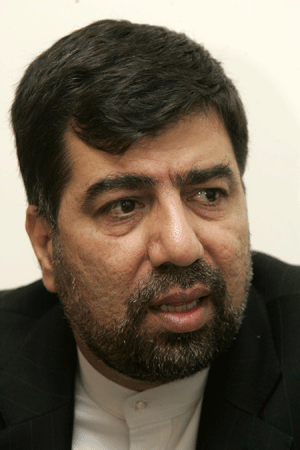
First, we congratulate the Egyptian people for their concentrated participation in the presidential elections. Referring to the principles of the Islamic Revolution in Iran, we constantly say we stand by the demands of different peoples, especially when it comes to the majority. Luckily, this time the Egyptian people has been quite aware in spite of all plots made in an attempt to restore the previous regime by determining the president to direct the remaining body of this regime.
We thank God as the awareness of the Egyptian people made them distinguish between the candidates and make the right choice. So, we congratulate the Egyptian people and the new President Dr. Muhammad Mursi for his gain. Furthermore, they've concentrated on the Islamism of their movement and have proved it is an Islamic movement. Supreme Leader His Eminence Imam Sayyed Ali Khamenei has constantly been reiterating this is an Islamic Awakening, the best evidence to which is that the Egyptian people elected an Islamist. This is why "Israel" has expressed its apprehension after Muhammad Mursi's gain. They consider the current stage bad since a government headed by Islamists has become in charge of the Egyptian borders with Palestine.
Today, we hear the same calls in Egypt and many Arab countries as the ones we heard in Iran in the days of the revolution. Once again, we congratulate the Egyptian people, Dr. Muhammad Mursi, and all the honorable people participating quite seriously and enthusiastically and preventing the previous regime from getting restored.
*This means you see Egypt has a new role in the Middle East and Mursi's gain is to benefit the Palestinian cause, doesn't it?
Definitely this is a new Egyptian stage, and it is completely different from all of the previous stages. Thus, it will benefit the Palestinian cause.
*Regarding the Bahraini issue, how do you view the public moves and the opposition's requests to achieve reforms?
The Bahraini people have declared they would go on with their peaceful opposition until they absolutely gain all rights required. Like the Iranian constitution states, we support peoples' rights and their just causes. The Bahraini people are advocating reforms, which is the least right for any people.
*What progress have the nuclear talks of Iran with "P5+1" states made after the last round in Moscow? Has Iran proved its right in enriching uranium through these talks?
As a matter of fact, the first real gain these talks made is the acknowledgement that the Islamic Republic of Iran has the right to benefit from the peaceful nuclear energy and enrich uranium. As for the details defining the percentage, they're still under discussion. I think these talks are going to take long since Iran has its proposals and "the P5+1" states have theirs in return.
This needs ongoing talks, especially as they've agreed during this stage to let experts begin the talks, then the assistant chiefs of the delegations or the chiefs of the delegations if necessary.
*Does the West's acknowledgement that Iran has the right to enrich uranium benefit Iran and allow it to break away from the sanctions imposed on it and to refute their grounds?
We actually ask this question to the Western states: As long as you acknowledge Iran's right to maintain peaceful nuclear energy, why are you imposing sanctions on it?! Neither have we asked them to eliminate the sanctions, nor will we. But on what grounds are the sanctions imposed?! This is the question that we want them to answer.
Yet, we do not ask them to eliminate the sanctions as they have pushed Iran to acquire self-sufficiency in many domains. Although we encountered difficulties at the beginning, we started adapting with the real situation we were in and looking for new solutions, eventually achieving self-sufficiency. Hadn't it been for the policy of sanctions and besiegement, we wouldn't have reached the stage we're now in. This made us avoid interfering with the issue of sanctions. But this question remains on mind: Why do the sanctions exist as long as Iran is practicing its rights?
*One more question this issue: Recently an espionage web of the "Mossad" has acknowledged assassinating the Iranian nuclear scientists, so is filing the dossiers it has documented as to this issue to the international courts and organizations?
Of course we're doing our best to hand over dossiers on this issue to the human rights organizations, the international courts, and the International Atomic Energy Agency (IAEA)n order to ask them to handle this issue.
Source: al-Intiqad, Translated and Edited by moqawama.org
